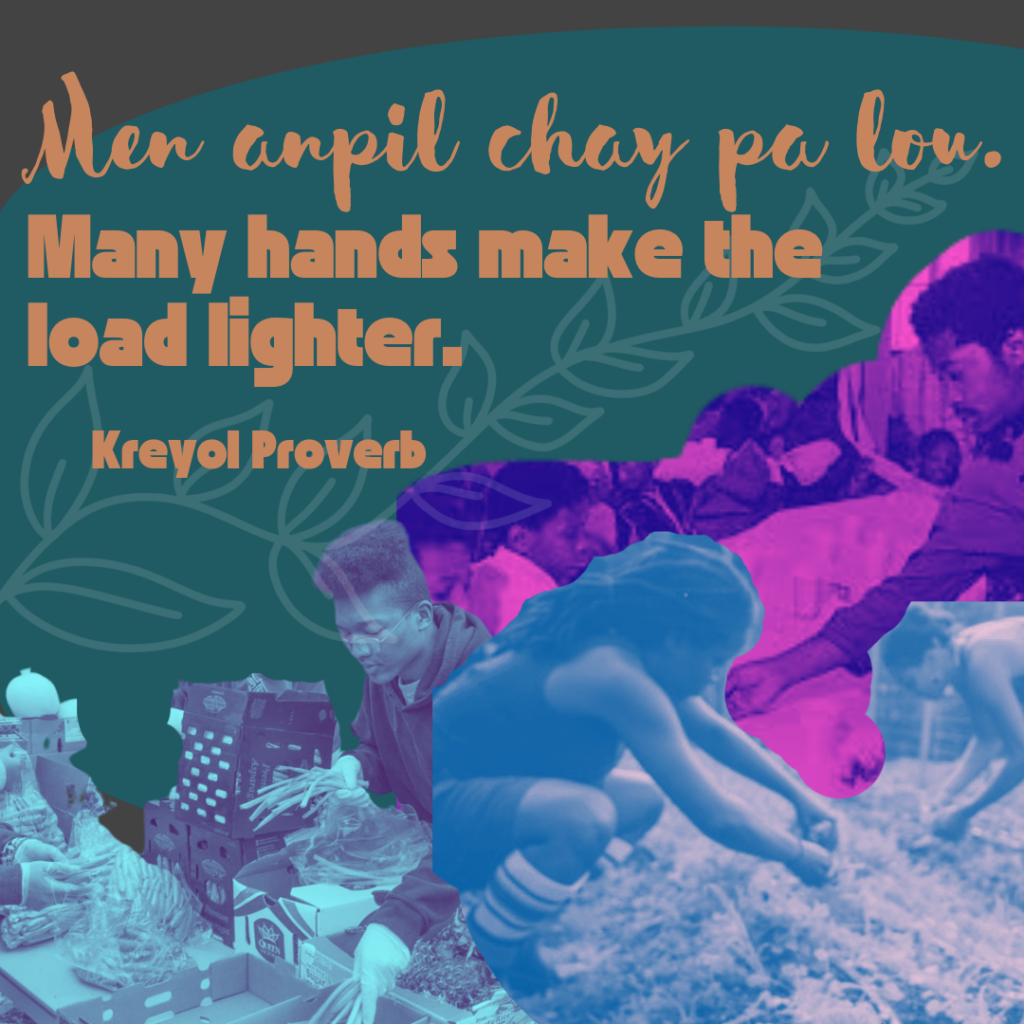
Defined: To define ourselves, name ourselves, create for ourselves, and speak for ourselves.
We are each other's harvest; we are each other's business; we are each other's magnitude and bond.
– Gwendolyn Brooks

The principle of self-determination has
been made to mean one’s propensity to persevere or the ability to assert one’s will over a situation. As with all ways of being framed in colonialism, these definitions draw a harsh line between our bodies and the ecologies that shape them.
It is a fractal trace of the anthropocentrism that is a characteristic ethos of modernity. Stated plainly: Colonialism teaches us to center humanness (understood through the lens of whiteness/maleness) as the metric for belonging and being in the world that we must bend to our will, rather than material and spiritual co-creators in the greater symphony of existence.
Question for reflection: Where do you find yourself forcing your will on a situation that is out of your control? What is in your control and what is not? Can you be okay with both?
The survival of Black Indigenous Queer and Trans people has been criminalized, reducing the material conditions of our lives to a mere consequence of our supposed savagery.
They tried to tell us we were beasts.
They experimented on us.
They legislated against us.
They denied us care.
Under the presumption that we deserved it.
The invitation of Kujichagulia is to remember that it has always been the people who have saved themselves by daring to assert that they have a right to exist. Self-determination in our communities looks like community control of governance.
When the AIDS epidemic emerged, it was sex workers and Trans women who resourced one another, organizing needle exchanges, safer sex kits, clothing swaps, and potlucks when society turned its back on those who’d fallen through the cracks.
During the crack epidemic, it was groups like the Black Panthers and the Young Lords sponsoring methadone clinics, free hepatitis screenings, and free breakfast programs that fed their communities when government subsidies had supposedly dried up.
When the Mexican government signed the NATO agreement, rural agrarian revolutionaries known as the Zapatistas formed the Zapatista Army of National Liberation to defend their land from the imperial forces that sought to dispossess the Indigenous people of Mexico of the land of their ancestors.
These organizers, groups, and individuals looked at their communities with care and strategized ways to restore dignity to their survival, rather than perpetuate the shame and violence inflicted on us.
Kujichagulia affirms that we have the right to exist. We have a right to feel affirmed in our bodies. That we deserve access to dignified, gender-affirming care. That we get to stand up for ourselves. We get to have boundaries. We get to be in spaces that make us feel safe. We get to dislodge our shame. We get to be flawed.
We get to be enough.
Care Reflection
Where are the places we get to be in fully?

Who are the people who we can fully be ourselves with?
-Images & Writing By Vic Collins
